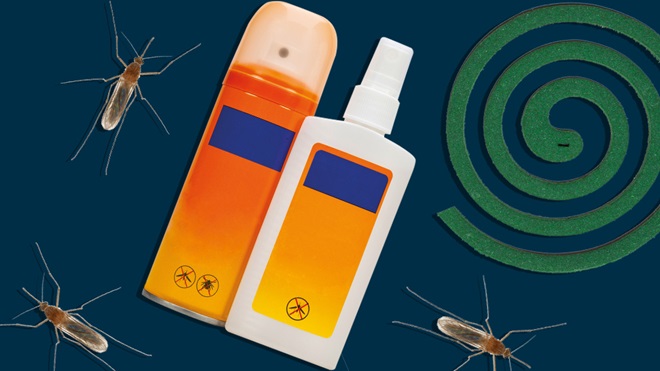Nothing shuts down a balmy summer BBQ or ruins the romance of an exotic tropical holiday quicker than an army of mosquitos out for blood. And then there's the dreaded experience of waking up in the middle of the night because the buzzing from a blood-sucking bug has roused you - it's somewhere out there, just waiting for you to fall asleep before it resumes its feeding frenzy.
On this page:
- Which active ingredient should you look for in a mosquito repellent?
- Are natural repellents effective?
- Are mosquito repellents safe?
- Top tips for using mosquito repellents
We're on your side
For more than 60 years, we've been making a difference for Australian consumers. In that time, we've never taken ads or sponsorship.
Instead we're funded by members who value expert reviews and independent product testing.
With no self-interest behind our advice, you don't just buy smarter, you get the answers that you need.
You know without hesitation what's safe for you and your family.
And you'll never be alone when something goes wrong or a business treats you unfairly.
Learn more about CHOICE membership today
Which active ingredient should you look for in a mosquito repellent?
Repellents can be produced using synthetic chemicals or natural products and are available as aerosols, creams, pump sprays, wipes and wearable devices such as wrist bands. The concentration of the active ingredient in mosquito repellents determines how long it will protect you.
- The most common active ingredients used are diethyltoluamide (DEET) and picaridin.
- Both DEET and picaridin are effective at preventing bites, but picaridin is odourless and so considered to be more pleasant to use.
- Plant-derived ingredients like melaleuca oil and citronella are also sometimes used.
Are natural repellents effective?
Natural repellent sprays and roll-ons are considered a safer alternative to other mosquito repellents, but while they provide some protection, in most cases they're not as effective as chemical products that use DEET or picaridin.
Some companies also make wrist band mosquito repellents, which are a different story. When CHOICE tested mosquito repellents in the past, the wrist band we looked at was relatively useless.
Are mosquito repellents safe?
Generally, mosquito repellents are safe for adults and children over three months of age. For bubs older than three months, look for child-specific insect repellent or those that have a low concentration of DEET or picaridin (less than 10%).
Insect repellents sold in Australia must be registered with the Australian Pesticides and Veterinary Medicines Authority (APVMA). This government authority assesses products for their effectiveness and safety, and the APVMA number must be labelled on the product along with the active ingredients and their concentration.
Repellents can be produced using synthetic chemicals or natural products and are available as aerosols, creams, pump sprays, wipes and wearable devices such as wrist bands.
Top tips for using mosquito repellents
- Apply it evenly to all areas of exposed skin. A spray here and there or applying repellent to your clothes or belongings isn't effective.
- Don't apply aerosols or pump sprays directly to your face – spray them onto your hands first and rub on evenly, avoiding contact with your eyes and mouth.
- Reapply frequently if you go swimming or sweat heavily.
- Don't use repellents on children under three months old. Stick to using netting on prams, cots and play areas to avoid bites.
- Consider how long you need to be protected. For a short trip outdoors a low concentration repellent will do, but if you're off on a bushwalk or fishing trip you'll need a higher-concentration repellent.
- Perfumes and dark clothes attract mosquitoes, so avoid them if possible.
Quick facts
- Mosquitoes are blood-sucking insects that are attracted to the smell of our skin, and when they bite inject saliva into it.
- A bite from a mosquito that has developed a virus has the potential to transmit diseases. Our bodies react by causing the "itchy bite".
- Only female mosquitoes bite – the blood from humans or animals gives them the protein they need for egg development.
- There are more than 300 species of mosquito in Australia, but only about 20 are of particular concern to human health.
- In Australia, the Ross River and Barmah Forest viruses are the most widespread mosquito-borne diseases, with more than 5000 cases of illness reported every year. Both cause joint pain and swelling, fatigue, muscle aches, rash and fever. Murray Valley encephalitis virus is potentially fatal and is generally reported in the north-west of the country, while dengue only occurs in Far North Queensland.
Stock images: Getty, unless otherwise stated.



